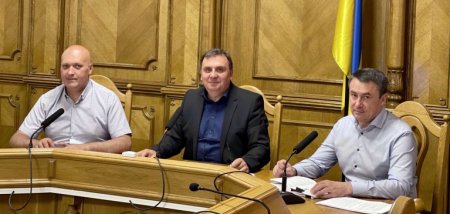Contact center of the Ukrainian Judiciary 044 207-35-46

During martial law, criminal proceedings are carried out in a special regime provided for by Art. 615 of the Criminal Procedural Code of Ukraine. The application of this article by the courts in practice raises many questions concerning the nuances of both the pre-trial investigation and the trial of criminal proceedings.
In addition, the number of criminal proceedings for crimes against the foundations of the national security of Ukraine, military criminal offences, criminal offences against peace, the security of mankind and international law and order has increased, as well as new articles have appeared in these sections of the Criminal Code of Ukraine, and some of the articles have been amended. In view of this, questions arise as to the delineation of the elements of crimes, the specificities of their qualification, etc.
The topic was discussed during the second online conference "Features of conducting criminal proceedings under martial law: substantive and procedural aspects."
According to Stanislav Kravchenko, President of the Criminal Cassation Court within the Supreme Court, with the onset of the full-scale Russian invasion of Ukraine, the courts have faced a number of problems concerning organizational issues and questions of application of the legislation in the light of the amendments made to it. Today, one of the main tasks is to ensure a unified approach to solving the problems that arise in the implementation of criminal proceedings.
At this difficult time, everyone is aware of the importance of bringing to justice those found guilty of, inter alia, high treason, collaboration, military and war crimes. Considering criminal proceedings on such crimes, judges should not give in to emotions and remember that one cannot deviate from the European values that Ukraine has professed for the past 30 years.
Lilja Gretarsdottir, Head of Cooperation Programmes Division within the Directorate General for Human Rights and the Rule of Law of the Council of Europe, said that she was impressed by the courage and bravery of the judges working under martial law. And in such circumstances, the role of judges is extremely important, because their activities should be maximally aimed at ensuring the protection of people's rights.
According to the speaker, it becomes more difficult for judges to observe the law in the conditions of hostilities. At the same time, judges have a historical responsibility, because the sentences they will pass are important not only for the present time, but also for the future.
Lilja Gretarsdottir assured that the Council of Europe would continue to take measures to support the judiciary of Ukraine, in particular, it will conduct expert consultations on legal standards in the context of martial law, strengthening the professional capabilities of judges.
.jpg)
International expert of the Council of Europe Jeremy McBride spoke about compliance with the standards of the Convention for the Protection of Human Rights and Fundamental Freedoms during the consideration of cases under martial law. Serhii Fomin, judge of the Third Judicial Chamber of the Criminal Cassation Court within the Supreme Court, devoted his speech to issues of the procedural nature of criminal proceedings under martial law (applying the provisions of Article 615 of the Criminal Procedural Code of Ukraine), and Herman Anisimov, Secretary of the Third Judicial Chamber of the Criminal Cassation Court within the Supreme Court, - to issues of criminal law, in particular, forms of identifying the objective side of the crime provided for in Art. 438 of the Criminal Code of Ukraine (violation of the laws and customs of war), its subjective elements, delineation from other types of crimes. You can read more about this in the following publications on the SC website and on the SC social media pages.
The online conference, organized by the Supreme Court in cooperation with the Office of the Council of Europe in Ukraine, took place on July 8, 2022. The event was attended by judges of the Criminal Cassation Court within the Supreme Court, presidents, vice-presidents, secretaries, judges of court chambers dealing with criminal cases of appeal courts, heads and judges of local courts, an international expert of the Council of Europe.